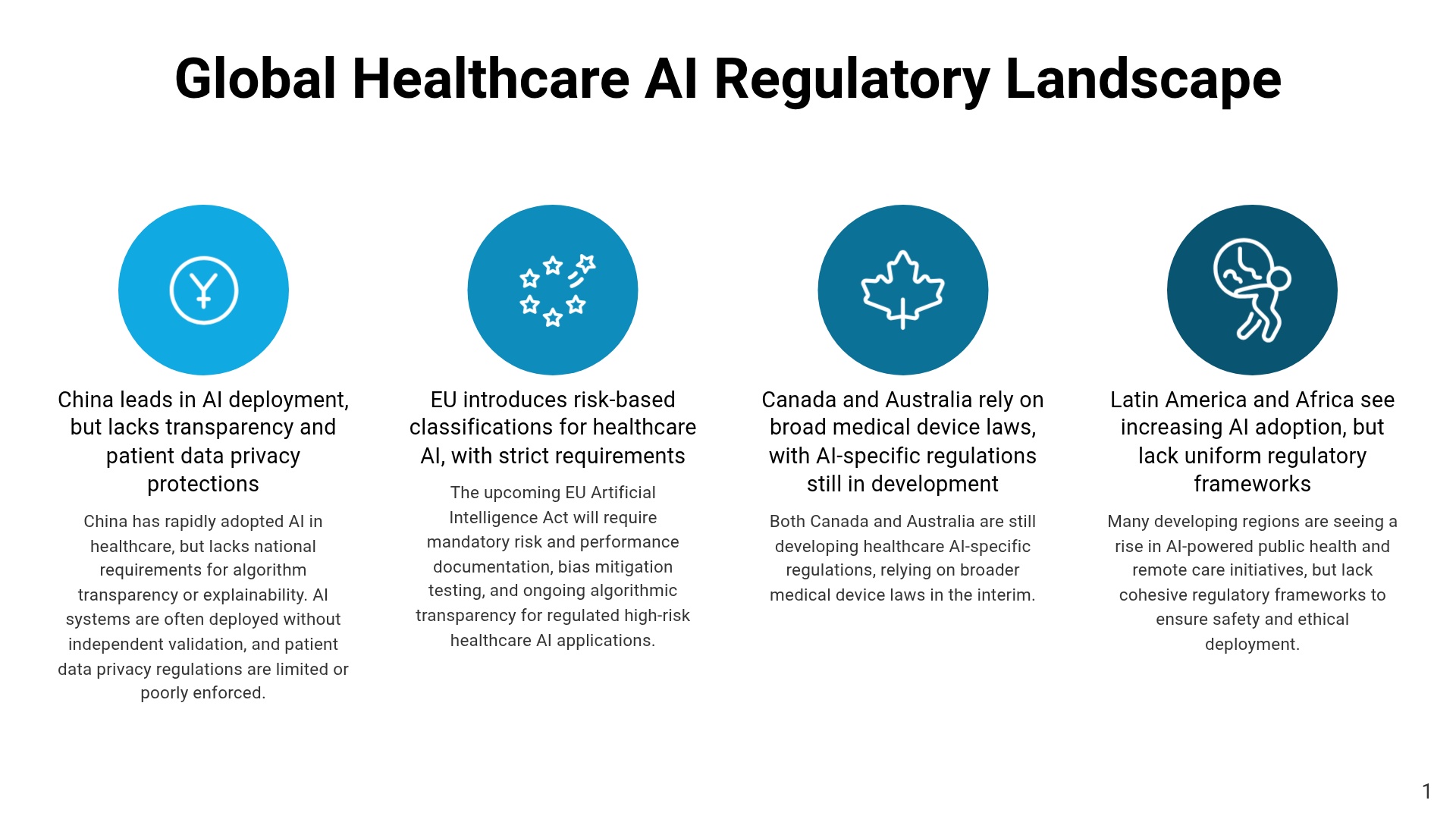Providers, Vendors, and Consumers Voice Conflicting Views on Patient Safety, Transparency, and Oversight in Expanding AI Ecosystem
WASHINGTON, DC / ACCESS Newswire / July 23, 2025 / Black Book Research today released findings from a national flash survey revealing significant differences in opinion regarding the regulation of artificial intelligence (AI) in healthcare among providers, technology vendors, and healthcare consumers. The survey illustrates a growing demand for oversight from providers and patients, while AI developers express concerns about potential impacts on innovation and market dynamics.
The study reflects a 360-degree perspective on AI adoption and risk management by capturing responses from: 90 AI professionals representing hospitals, health systems, and health plans; 24 senior executives from leading healthcare AI vendor organizations; and 300 U.S. healthcare consumers.
"The healthcare sector is embracing artificial intelligence at an accelerating pace, but regulatory structures have not evolved proportionately," said Doug Brown, President of Black Book Research. "This flash poll underscores the need for multi-stakeholder collaboration to ensure responsible innovation while addressing patient safety, ethical use, and trust."
Key Findings
Patient Safety and AI Validation
73% of provider and payer professionals surveyed indicated that current AI tools are being implemented in care environments without adequate clinical validation. Only 16% of vendor executives shared the same concern. Among consumers, 89% support mandatory government testing and approval of AI technologies used in diagnosis, risk scoring, or care planning.
Transparency and Informed Consent
80% of providers reported that patients are generally not informed when AI is involved in decision-making or treatment selection. Only 8% of vendors support regulatory requirements to notify patients about AI-driven interventions. 92% of consumers expressed a desire to be notified when AI plays a role in their care, and 97% stated they would be uncomfortable if clinical decisions were made without human review.
Legal Accountability
85% of healthcare professionals cited a lack of clarity around liability when AI tools are involved in patient harm or adverse events. 96% of vendor leaders believe responsibility should fall on the healthcare organization using the tool. 77% of consumers surveyed agreed that providers should be held accountable for AI-related errors, regardless of third-party software involvement.
Bias and Health Equity
89% of providers believe AI systems risk perpetuating racial, gender, and or socioeconomic bias. Only 14% of vendor executives acknowledged bias as a systemic concern. Among consumers identifying as members of underserved populations, 96% reported concern about algorithmic bias, and 88% support legislation requiring mandatory bias testing before clinical deployment.
Regulatory Gaps in the U.S. Healthcare Ecosystem
The survey also identified broad concern about the lack of regulatory cohesion across federal and state levels:
40% of providers view current federal oversight as inadequate to ensure safe and ethical AI deployment in clinical environments. 93% indicated that their organizations operate in states with no existing healthcare AI regulatory guidance. Only 7% of vendors support expanded federal regulation. 92% of healthcare consumers indicated support for the establishment of a national oversight body dedicated to AI in healthcare.
Cybersecurity and Data Governance
79% of providers surveyed reported concerns that many healthcare AI tools are introduced without sufficient cybersecurity protections or transparent data governance. Only 13% of vendor executives acknowledged the need for additional cybersecurity layers beyond their current models. 98% of consumers expressed concern regarding the collection and use of personal health data by AI systems, particularly those involving third-party analytics platforms.
__________
Global Regulatory Landscape: A Comparative Perspective
Black Book Research notes that regulatory challenges in the U.S. are mirrored in many international healthcare markets. While AI in medicine is rapidly advancing globally, the development of ethical and safety frameworks remains inconsistent.
China: China continues to lead in AI deployment across healthcare systems, yet there are no national requirements for algorithm transparency or explainability. AI systems are often deployed in public hospitals without independent validation and Patient data privacy regulations are limited or poorly enforced, especially in large-scale government-sponsored initiatives.
European Union: The upcoming EU Artificial Intelligence Act introduces risk-based classifications for AI tools, with healthcare algorithms largely categorized as high-risk. The legislation will require: Mandatory risk and performance documentation; Bias mitigation testing; and Ongoing algorithmic transparency for regulated AI applications.
Canada and Australia: rely on broad medical device laws with healthcare AI-specific regulations still under development.
Latin America and Africa: are seeing increasing adoption of AI in public health and remote care but lack uniform regulatory frameworks.
"We're seeing a misalignment between the creators of healthcare AI, the clinicians expected to use it responsibly, and the patients whose lives are impacted by it," said Brown. "As federal policy trends toward lighter-touch AI regulation across industries, it's increasingly clear that healthcare cannot afford to be treated like every other sector. The stakes are too high, and the expectations from the front lines and the public are too urgent to ignore."
About Black Book Research
Black Book Research is an independent healthcare market research and public opinion firm, recognized for its commitment to unbiased insights and data integrity. Over the past 15 years, Black Book has gathered more than 3 million validated viewpoints from healthcare professionals, including physicians, nurses, administrators, and IT leaders. The firm specializes in flash surveys, longitudinal studies, and deep-dive benchmarking across health technology, operations, and clinical transformation. Using a combination of expert panels, online surveying, and modern data collection tools, Black Book delivers real-time, actionable insights to stakeholders across the healthcare industry. Many of its comprehensive research reports are provided gratis to healthcare providers, payers, and policymakers to eliminate vendor influence and promote transparency in technology decision-making and performance evaluation.
Reach us at www.blackbookmarketresearch.com
Contact Information
Press Office
research@blackbookmarketresearch.com
8008637590
SOURCE: Black Book Research
View the original press release on ACCESS Newswire
